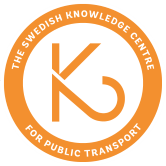Article highlighted
Low-income travelers in public transport pay more

Subsidizing public transport is an incentive to improve transportation for people with low income. However, new K2-research reveals that public transport travelers with low income to a large extent use single tickets.
− If you travel as frequently as the people in our sample, single tickets are much more expensive than, for example, monthly travelcards. But people with low income travel more often with single tickets, says K2 PhD-student Anders Bondemark at Lund University and the Swedish National Road and Transport Research Institute.
Anders Bondemark has studied to what extent travelers in Swedish public transport buy travelcards, monthly or annual and how this differs compared to income. He can conclude that people with low income pay more for their public transport travels than others.
− As the monthly travelcard is the most subsidized alternative, there is an unfortunate distributive effect when low-income travelers choose not to buy it, says Anders Bondemark.
In order to facilitate people to choose public transport, other solutions have been tried out in some European countries, for example free public transport or subsidizing tickets at a more individual basis. These solutions, however, have turned out to be either expensive, stigmatizing and/or demanding a heavy administration.
− An exciting solution is a card which automatically chooses the paying option most favorable for the traveler, based on the actual number of trips. In combination with cheap single tickets such a travelcard might improve the situation considerably for travelers with economic limitations, Anders Bondemark concludes.
These research results are published in the article Is it expensive to be poor? Public transport in Sweden.
Contact
Anders Bondemark, PhD-student at Lund University, employed at the Swedish National Road and Transport Research Institute, VTI
E-mail: anders.bondemark@vti.se
